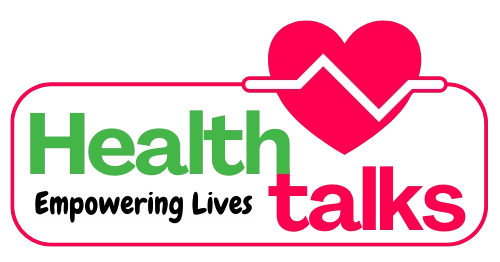Introduction:
Heart disease remains a leading cause of mortality worldwide, with heart attacks being a significant contributor. However, the good news is that many heart attacks are preventable through lifestyle modifications and proactive health measures. In this comprehensive guide, we will delve into evidence-based strategies to safeguard your heart health and reduce the risk of experiencing a heart attack.
Basics of Heart Attack:
A heart attack, medically known as a myocardial infarction, occurs when the blood flow to a part of the heart is blocked, usually by a blood clot. This interruption in blood flow deprives the heart muscle of oxygen and nutrients, leading to tissue damage or death. The primary cause of heart attacks is coronary artery disease, which occurs due to the buildup of plaque (atherosclerosis) in the arteries that supply blood to the heart.
Risk Factors of Heart Attack:
Numerous factors contribute to the development of coronary artery disease and increase the risk of heart attacks. These include:
- High Blood Pressure (Hypertension): Elevated blood pressure puts strain on the heart and damages the arteries over time, increasing the risk of a heart attack.
- High Cholesterol: High levels of LDL cholesterol, often referred to as “bad” cholesterol, can lead to the accumulation of plaque in the arteries, narrowing them and restricting blood flow to the heart.
- Smoking: Tobacco smoke contains numerous harmful chemicals that damage the blood vessels, accelerate the formation of plaque, and promote blood clotting, all of which heighten the risk of heart attacks.
- Diabetes: Uncontrolled diabetes can damage blood vessels and nerves, predisposing individuals to cardiovascular complications, including heart attacks.
- Obesity: Excess body weight, particularly around the waist, increases the likelihood of developing other risk factors such as hypertension, diabetes, and high cholesterol, thereby elevating the risk of heart attacks.
- Physical Inactivity: Leading a sedentary lifestyle contributes to weight gain, high blood pressure, and unhealthy cholesterol levels, all of which are risk factors for heart disease.
- Unhealthy Diet: A diet high in saturated fats, trans fats, cholesterol, sodium, and refined sugars can contribute to obesity, high blood pressure, and elevated cholesterol levels, all of which increase the risk of heart attacks.
- Stress: Chronic stress can elevate blood pressure, promote inflammation, and lead to unhealthy coping mechanisms such as overeating or smoking, all of which are detrimental to heart health.
Preventive Measures:
Fortunately, many of the risk factors for heart attacks are modifiable through lifestyle changes and medical interventions. Here are science-backed strategies to prevent heart attacks:

Maintain a Healthy Diet:
- Emphasize whole foods such as fruits, vegetables, whole grains, lean proteins, and healthy fats.
- Limit saturated fats, trans fats, cholesterol, sodium, and added sugars.
- Incorporate heart-healthy foods such as fatty fish (rich in omega-3 fatty acids), nuts, seeds, and olive oil.
- Follow dietary patterns such as the Mediterranean diet or the DASH (Dietary Approaches to Stop Hypertension) diet, which have been associated with a lower risk of heart disease.

Exercise Regularly:
- Aim for at least 150 minutes of moderate-intensity aerobic exercise or 75 minutes of vigorous-intensity exercise per week.
- Include activities that strengthen the heart and muscles, such as brisk walking, jogging, cycling, swimming, or strength training.
- Incorporate physical activity into your daily routine by taking the stairs, walking or biking to work, or engaging in active hobbies.
Maintain a Healthy Weight:
- Achieve and maintain a body mass index (BMI) within the normal range (18.5–24.9 kg/m²).
- Focus on gradual, sustainable weight loss through a combination of dietary changes and increased physical activity.
- Consult a healthcare provider or registered dietitian for personalized guidance and support.
Quit Smoking:
- Seek support from healthcare professionals, smoking cessation programs, or support groups.
- Explore nicotine replacement therapy (e.g., patches, gum, lozenges) or prescription medications to aid in smoking cessation.
- Utilize behavioral strategies such as identifying triggers, developing coping mechanisms, and avoiding situations where smoking is prevalent.


Manage Stress:
- Practice relaxation techniques such as deep breathing, meditation, yoga, or progressive muscle relaxation.
- Engage in activities that promote stress relief and emotional well-being, such as hobbies, spending time with loved ones, or pursuing creative outlets.
- Consider seeking support from mental health professionals, counselors, or support groups if stress becomes overwhelming.
Monitor and Control Blood Pressure and Cholesterol:
- Have regular check-ups with a healthcare provider to monitor blood pressure and cholesterol levels.
- Follow recommended treatment plans, which may include medications (e.g., antihypertensives, statins) and lifestyle modifications.
- Adopt heart-healthy habits such as reducing salt intake, limiting alcohol consumption, and incorporating foods that lower cholesterol (e.g., oats, beans, fruits, vegetables).
Manage Diabetes:

- Maintain blood sugar levels within the target range through medication, insulin therapy, dietary changes, and regular physical activity.
- Monitor blood sugar levels regularly and seek medical advice if levels are consistently elevated.
- Follow a diabetic meal plan that emphasizes portion control, carbohydrate moderation, and nutrient-dense foods.
Get Adequate Sleep:
- Aim for 7-9 hours of quality sleep per night to support heart health and overall well-being.
- Establish a consistent sleep schedule and create a relaxing bedtime routine.
- Address sleep disorders such as sleep apnea with appropriate interventions.

Conclusion:
Preventing heart attacks requires a proactive approach that addresses modifiable risk factors through lifestyle modifications and medical interventions. By adopting a healthy diet, engaging in regular exercise, maintaining a healthy weight, quitting smoking, managing stress, controlling blood pressure and cholesterol, managing diabetes, and prioritizing sleep, you can significantly reduce your risk of experiencing a heart attack. Consult with healthcare professionals for personalized guidance and support on your journey to heart health. Remember, the choices you make today can shape your heart health for years to come.
ABOUT THE AUTHOR
Dr. Alex Sam is a passionate healthcare professional with an MBBS and MRCGP degree and a strong commitment to modern medicine. Known for his empathetic approach, he emphasizes listening to his patients and understanding their unique health concerns before offering treatment. His areas of focus include family medicine and general health management, where he strives to provide holistic care that improves both physical and mental well-being. Dr. Alex is also a strong advocate for preventive screenings and early detection of diseases, ensuring his patients maintain healthier lives. With a calm demeanor and deep medical insight, he has earned the trust of both his patients and peers in the medical community.
















Add comment